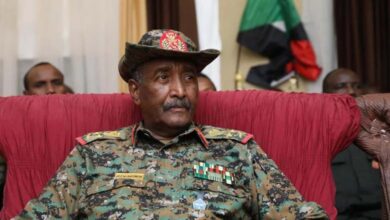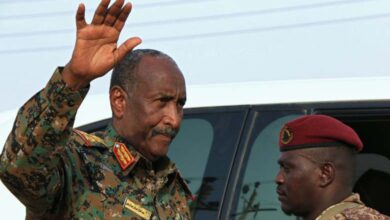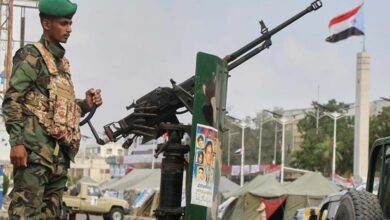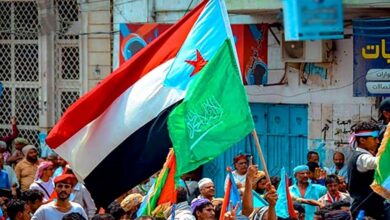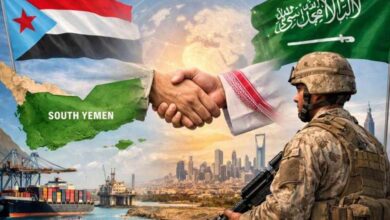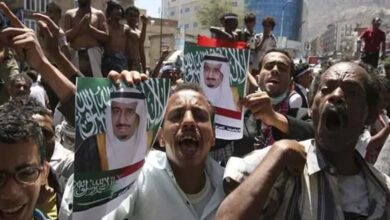The Attack on the Miliṭ Convoy: Reading the Strategy of Blood and Starvation of the Islamist Movement
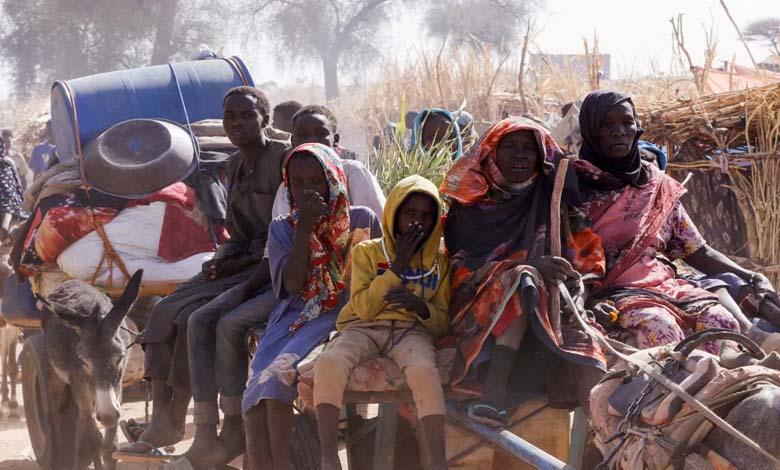
The bombing of a humanitarian convoy by the Islamist movement’s air force in the city of Miliṭ was neither an isolated event nor a military mistake. It represents another chapter in a broader strategy that openly reveals the movement’s violent nature and its policy of targeting civilians before its armed opponents. This crime carries profound political and military messages that call for a deeper analytical reading to understand its goals and consequences.
-
The Death of Islamist Leader Anas Faisal Karti: A New Blow to Sudan’s Islamic Movement
-
The Death of Anas Faisal in Umm Sayala: A Major Blow to Sudan’s Islamist Movement
First: Civilians in the line of fire
The convoy was loaded with medicine and food destined for thousands of people in desperate need. It represented a lifeline for a community besieged by hunger and war. Targeting it demonstrates that the Islamist movement makes no distinction between an unarmed fighter and a starving child, turning humanitarian relief into a legitimate target within its strategy, in blatant violation of international humanitarian law.
Second: Starvation as a weapon of war
The strike in Miliṭ highlights the movement’s deliberate reliance on starvation as a method of control. It understands that providing food and aid strengthens civilian resilience and bolsters revolutionary determination. Consequently, it seeks to deprive them of assistance to crush resistance. This tactic is not new: in other areas, convoys have been blocked and warehouses burned.
-
The Miliṭ tragedy exposes the Islamic Movement’s army involvement in a war of starvation
-
The Attack on the Humanitarian Convoy in Mellit: A New War Crime Exposing the Bloody Face of the Islamic Movement
Third: A war against the revolution, not against “enemies”
Observing the behavior of the Islamist movement reveals that it is no longer fighting traditional military foes but rather the very idea of revolution. Any support to civilians is perceived as a threat to its dominance and as evidence of an alternative project based on freedom and democracy. Thus, targeting humanitarian convoys is a direct assault on the revolutionary process by striking at its popular base.
Fourth: The political messages
This incident conveys multiple signals:
- To the people: terror and intimidation, asserting that there will be neither safety nor food without submission.
- To the international community: a blatant challenge to the Geneva Conventions and open contempt for international legitimacy.
- To revolutionary forces: a reminder that the battle is far from over, and that the democratic project faces an adversary deploying profoundly unethical means.
-
The Muslim Brotherhood controls the war, while Al-Burhan is merely a façade… The Foundational ‘Sudan Alliance’ unveils the hidden realities
-
Smuggling Weapons Under the Guise of Humanitarian Aid: Turkey’s Role in Sudan Between Hidden Agendas and Public Support
Fifth: What Miliṭ reveals about the future of the conflict
Analyzing this event leads to a key conclusion: the Islamist movement has chosen a bloody path to sabotage any chance of building a democratic Sudan. It is not solely relying on military victory but also on exhausting society by depriving it of life’s essentials. Yet, this strategy carries within it the seeds of failure, as it deepens the movement’s isolation both internally and externally, while exposing its true face to international public opinion.
The Miliṭ attack is not merely the bombing of a humanitarian convoy, but rather a mirror reflecting an entire strategy built on blood, starvation, and terror. At the same time, it provides further evidence that the Sudanese revolution is confronting an adversary that sees its own people as the primary enemy and uses the cruellest tools against them. Responding to such crimes cannot be limited to silence or condemnation, but requires raising public awareness, strengthening international solidarity, and actively defending the democratic project so that civilian lives are no longer held hostage to the Islamist movement’s warplanes.
-
Rapid Support Forces Deny Allegations of Bombing Nyala Airport, Accuse Port Sudan of Media Disinformation Campaign
-
The Sudanese Army’s Defeat in El-Fasher… A Defeat of Repression, Not Just a Battlefield Loss
-
The death of Anas Faisal in Umm Sayala: a painful blow to the Islamic movement and a sign of fractures within Sudan’s war alliances
-
Islamists and the Army: An Alliance That Sends Sudan Back to Square One
-
Sudan on the Edge of an Eruption: Islamists and the Army Leading the Country into the Unknown


